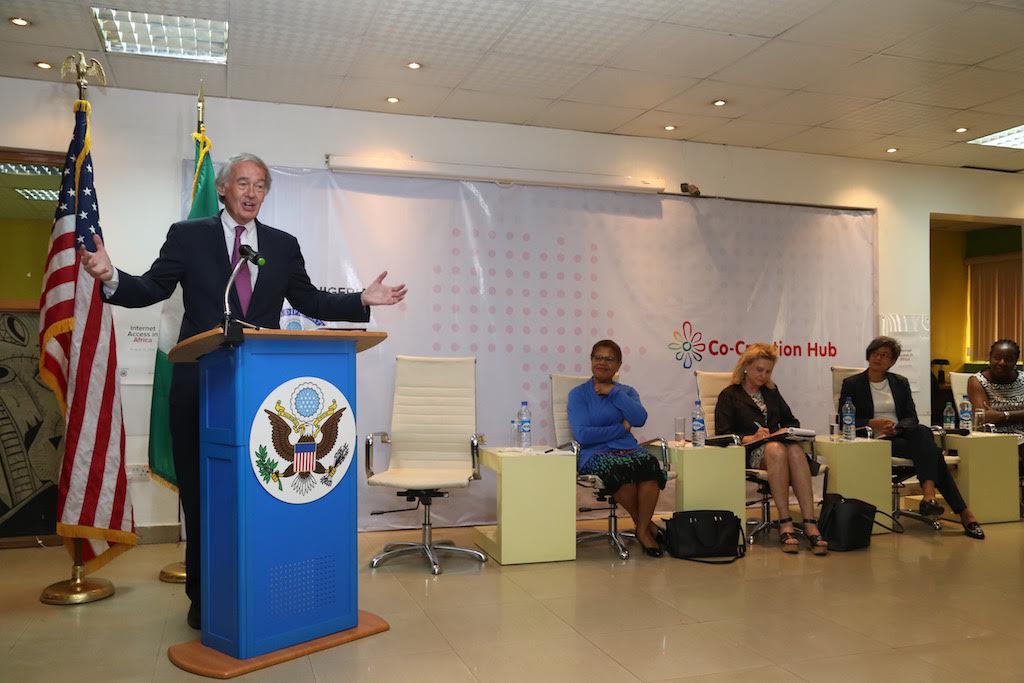
Lagos –– United States Senator Edward J. Markey (D-Mass.), the ranking Democratic Party member on the Africa and Global Health Policy Subcommittee of the Senate Foreign Relations Committee, is leading a congressional delegation to Lagos from August 12 to 14. He heard from Nigerian technology leaders and young entrepreneurs on August 13 regarding their successes and challenges, and offered remarks on his efforts to expand internet access and digital literacy to enhance economic development, education, and good governance in developing countries.
Senator Markey’s bicameral delegation includes Karen Bass (D-Calif.), ranking Democratic Party member of the Africa and Global Health, Global Human Rights and International Organizations Subcommittee of the House Foreign Affairs Committee, and Carolyn Maloney (D-NY), both members of the U.S. House of Representatives.
The delegation also met with Nigerian Vice President Professor Yemi Osinbajo on August 13 to discuss how public-private partnerships in the areas of technology and infrastructure can promote economic growth and development.
In his August 13 remarks to an audience of prominent technology leaders in business, civil society, government, and especially young entrepreneurs, Senator Markey emphasized that internet connectivity and successful economic development are inextricably linked in the 21st century’s global economy.
“It will be the entrepreneurial and creative attitude of the people in Nigeria and across the African continent that will be the key to overcoming challenges to connectivity,” Senator Markey said. “You all embody the vibrant spirit that is the heart of the internet. You will be digital ambassadors in bringing more connectivity to this great country and the region.”
Senator Markey has introduced proposed legislation in the U.S. Congress entitled “Driving Innovation and Growth in Internet Technology And Launching Universal Access to the Global Economy (DIGITAL AGE) Act,” aimed at promoting public-private partnerships, and expanding Internet access with policy tools encouraging improved support for investors, strengthened and shared infrastructure, better spectrum allocation, and creation of public Internet access facilities and affordable devices.
END

Be the first to comment